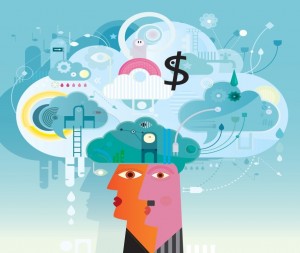 “People are itchy and lost and bored and quick to jump to any fix. Why is there such a vast self-help industry in this country? Why do all these selves need help? They have been deprived of something by our psychological culture. They have been deprived of the sense that there is something else in life, some purpose that has come with them into the world.”
“People are itchy and lost and bored and quick to jump to any fix. Why is there such a vast self-help industry in this country? Why do all these selves need help? They have been deprived of something by our psychological culture. They have been deprived of the sense that there is something else in life, some purpose that has come with them into the world.”
—James Hillman, PhD
Little Acorns: A Radical New Psychology
We all want to be valued. And in the deepest part of ourselves, we know that. Yet it is forgotten when we encounter each other. What we then do is revert to the pecking order impulse and size up another person to establish either their comparative worth to us or our superiority to them, forgetting that each of us wears an invisible sign that reads, “Notice me; make me feel important.”
We also forget this in our intimate relationships when our need to be valued can overshadow everything else. Many of us are unfulfilled in our lives, and many of us have hungry hearts. There is a way to change this and create healthy, fulfilling relationships, but most of us do not know how. Instead we continue to behave as we always have and continue to experience the same outcomes.
What we want in our relationships is for another person to listen, with genuine interest, to our story, our suffering, our hopes, and our dreams. We want them to care about our life—and not because of some self-serving agenda on their part. Being present to another person in a fully engaged and authentic way connects us with our true self as well as connects us with the other person. Being purely present to another person, or they with us, is a deeply fulfilling experience.
Our relationships give us emotional nourishment and can be the spark that motivates and inspires us to live more authentically, to re-direct and re-shape ourselves in a new and joyful way. To repeat Dan Buettner’s earlier comment, “Relationships are really the key to lifelong happiness.”1 We want them, we need them, and we continually seek them.
Having the right skills to create healthy, thriving relationships is important. How to create these types of relationships is not something we are taught to do. We learn about relationships with our eyes and ears from observing our family members, our peers, and surrounding environment. Unfortunately for many of us, the skills we have learned do not result in successful and healthy relationships.
It is now well established that our relationships are intimately connected to our state of health. Experiencing the pain of repeated failed relationships can deeply undermine our well-being and self-confidence and lead to loneliness, depression, and chronic illness. Knowing this, it makes good sense to learn relational skills that can help us create more positive and successful outcomes.
By having a better understanding of why we behave as we do, and by learning new skills and knowledge that can facilitate the transformation of our behaviors and thus our relationships, we will improve our relational outcomes as well as the overall state of our health and well-being.
Changing behavior is not easy. The way we behave and why we behave as we do is as unique to each of us as our fingerprints or DNA. Although changing our behavior is challenging, the rewards can be enormous. By changing our relational behaviors we can re-direct all aspects of our life—enhancing our happiness, our work, and our personal fulfillment, and even increasing our longevity.
Excerpted from "Changing Behavior: Immediately Transform Your Relationships with Easy to Learn, Proven Communication Skills."
